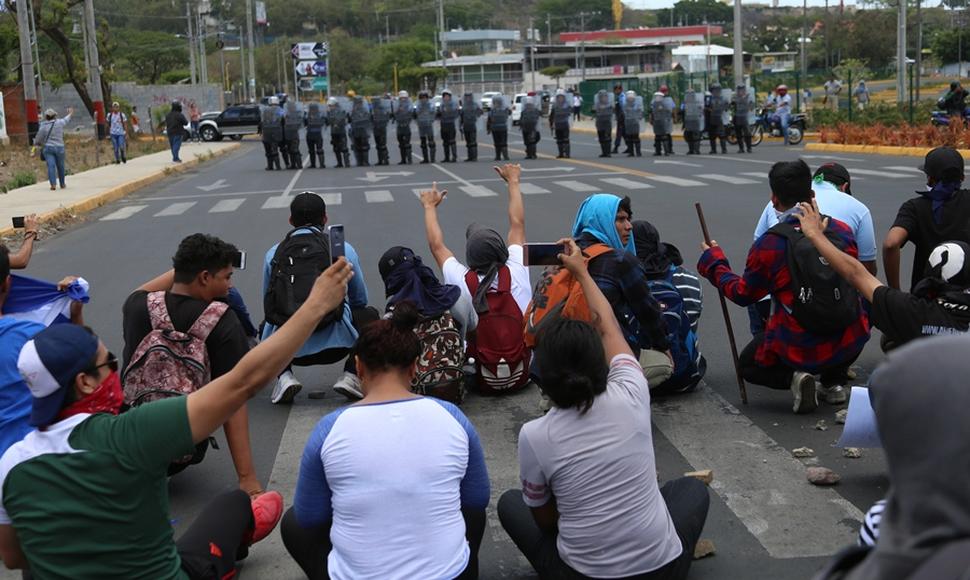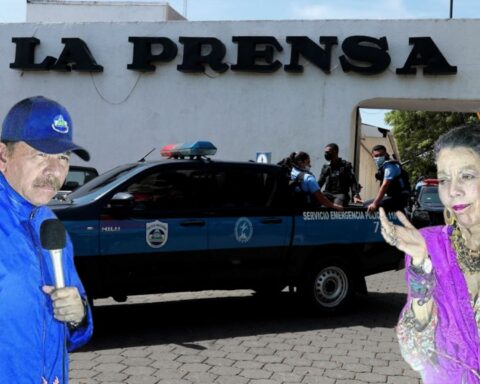After a Holy Week of siege, repression and arbitrary arrests in Nicaragua, the former secretary of the Inter-American Commission on Human Rights (IACHR) Paulo Abrao considers that the project of authoritarian power of the regime of Daniel Ortega and Rosario Murillo “continues as never before.”
In an exclusive interview with Article 66, The expert on human rights issues stated that on the eve of the April 2018 anniversary, the Ortega dictatorship is executing a new wave of repression, arbitrarily detaining opponents.
Related news: Ortega undertakes a “hunt” for the fifth anniversary of April, 21 detainees in nine days
“This is a sign that the government is going to continue to repress anyone who wants to demonstrate critically – so – this project is simply authoritarian and totalitarian,” he said.
Ortega rejects all attempts at dialogue
He also considered that the Ortega government is sending another message to the international community that “it is not going to back down from its repressive environment and is turning its back on all attempts at dialogue and requests for respect for human rights.”
“If -the dictator Ortega- continues like this, Nicaragua will consolidate a project of being a country totally closed to the world and self-referential in its dictatorship,” added the human rights defender.
Referring to the Organization of American States (OAS), with whom the dictator Ortega broke relations, Abrão recalled that this space to achieve a solution and understanding no longer exists, for which he considers that “the path would be to build a type of international mediation in in which some governments that still maintain relations with Nicaragua could participate.
He stressed that in recent years there have been efforts to establish some kind of dialogue, “even with progressive or left-wing governments that are somewhat close to the Sandinista Front, however the Nicaraguan government has categorically rejected that option, so that today I do not see any new effort that could change that situation.
Despite all the adverse situations that revolve around the crisis that Nicaragua is experiencing, Abrão indicated that one should not give up or lose hope.
“At the same time, the pressure is growing, the UN renewed the mandate of the Group of Experts, in Argentina the cause of crimes against humanity is being opened, in Brazil the investigation is being opened for the murder of Raynéia Lima (…) Which means that in the international space it will be possible, in some way, to contribute to increasing the pressure and seek forms of individual responsibility for those responsible for the serious violations of human rights in Nicaragua,” he said.

On the eve of the commemoration of the social protests of April 2018, which left more than 300 assassinated, dozens of political prisoners and thousands of exiles, Paulo Abrão remarked that the country experienced a true civic rebellion, which was “brutally” repressed by of the Sandinista government.
«This is a date that has mixed feelings, on the one hand the accumulation of injustice, and on the other a deep admiration and respect for the spirit of resistance of the Nicaraguan people to continue fighting despite the intensification of the dictatorship; This example of resistance points us to a horizon of hope that it is possible to change things, and hopefully soon all the people of Nicaragua can live in a reconciled way, rebuilding their democracy and restoring the conditions of a dignified life in the country”, concluded.








